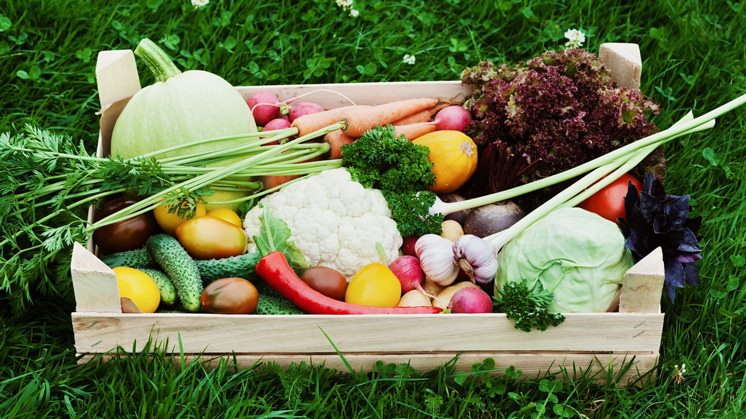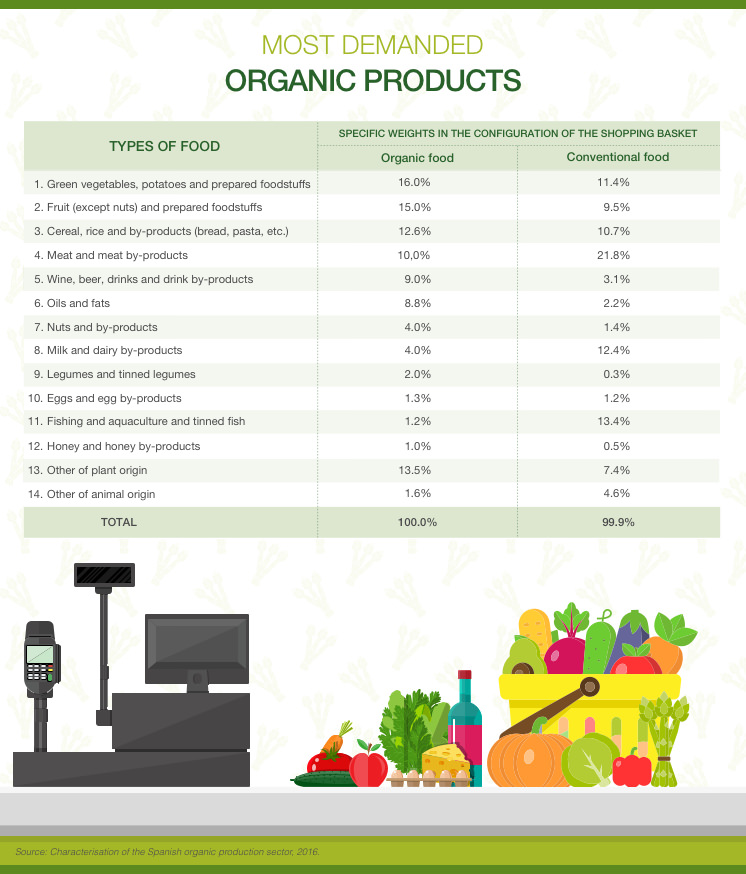Organic products

The demand for organic products increases: the global market of food products produced in organic farms has grown four-fold over the past century. For example, in 2016, it grew by 13% in the European Union and by 24.8% in Spain (The World of Organic Agriculture 2017).
What is an organic product?
Food grown by respecting the cycles of nature, with no chemical pesticides or synthetic or genetically modified fertilisers, rotating crops to use up all nutrients in soil. This type of production increases the formation of local species that are resistant to plagues and diseases. In the case of livestock farming, animals live in a semi-free environment and the use of antibiotics and hormones is prohibited.
Are there any differences between organic, green and eco-friendly products?
The current legislation of the European Union regulating organic products establishes these three definitions/adjectives as synonyms. Likewise, the Organisation of Consumers and Users establishes the languages as of a "language-based" nature: the term "eco-friendly" is commonly used in Spain; the French define these as "green" products and the British as "organic" products.
How can I tell the difference when buying them at the store?
All organic products produced in the European Union have been marked with an ecolabel that guarantees that the food comes from organic farms. Authorities visit all producers classified as organic to certify that their production processes comply with the EU's regulations.
SEE INFOGRAPHIC: The EU's ecolabel [PDF] External link, opens in new window.
Are organic products healthier?
According to Stanford University "there is no evidence about a higher dietary value or of the fact that they are healthier than conventional products, but it has been demonstrated that their consumption reduces the exposure to pesticide waste and antibiotic-resistant bacteria". Another study published in the prestigious British Journal of Nutrition concluded that organic products contain up to 60% more antioxidants, 87% less nitrites and 50% less cadmium.
Do organic products taste better?
Scientific studies are inconclusive: demonstrating that they taste better as a result of a specific production method and not about seed varieties or harvesting seasons is almost impossible. In fact, the taste of food mainly depends on its ripeness, although other variables have an impact, such as the climate and or the nutrients in crop-growing soils.
Why are organic products more expensive?
According to an analysis conducted by Everis, a multinational consulting firm, organic products are more expensive than conventional products and this difference, in the case of European Union, ranges from 9% in Germany, to 74% in Spain. The reason for this higher price is in the conditions under which organic products are produced: crop rotation and seasonality make organic farming less profitable, among other factors.
Is it worth paying the extra price?
Yes, because of the ethical component of respect towards the environment: the elimination of chemical pesticides and synthetic fertilisers reduces the contamination of soils and aquifers. Likewise, local and proximity consumption is preferred in this type of production.

What is the eco-friendly diet?
It is based on seasonal organic food, bought from local markets or stores to local producers and cooked and processed at home: jam, tinned food, etc.
Who consumes these products?
For example, according to the last study conducted by the Ministry of Agriculture, Fishing, Food and the Environment, in Spain, consumers who are committed to sustainability, who choose products in their environment and continue to read the food labels, without giving importance to brands. The average age of the organic product consumer is 43.4 years old and 53% are women.





